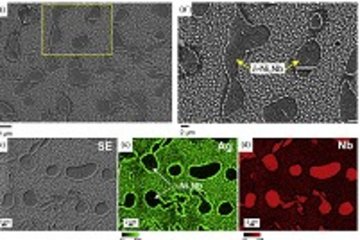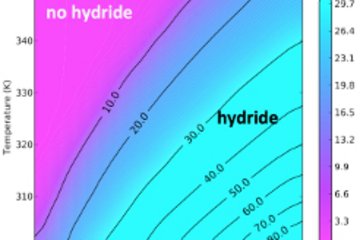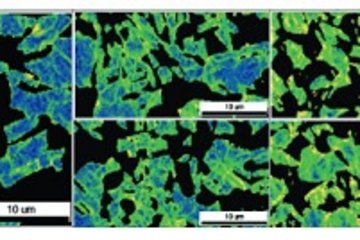All genres
481.
Talk
Deformation of CoCrFeNi alloy thin films under thermal fatigue. International Conference on Creep and Fracture of Engineering Materials and Structures CREEP 2024, Bangalore, India (2024)
482.
Talk
Using in-situ nano- and micromechanical testing to probe the fracture behavior of intermetallic Laves phase materials. 7th International Indentation Workshop – IIW7, Hyderabad, India (2023)
483.
Talk
Nanoindentation of FeAl in the Ultra-High Strain Rate Regime. 7th International Indentation Workshop – IIW7, Hyderabad, India (2023)
484.
Talk
Atomic Scale Analysis Reveals the Interplay between Grain Boundary Structure and Composition. MRS 2023, Boston, MA, USA (2023)
485.
Talk
Synthesis and characterisation of reactive magnetron sputtered wüstite thin films. European Materials Day 2023, online (2023)
486.
Talk
Resolving the interplay of structure and energy landscapes of tilt grain boundaries in metals. 3rd ELSICS Conference and Bunsen-Colloquium “Energy Landscapes and Structure in Ion Conducting Solids (ELSICS)”, Ulm, Germany (2023)
487.
Talk
The chemical, thermodynamic and kinetic roles of pores in the hydrogen-based direct reduction of single-crystalline wüstite into iron. EUROMAT 2023, Frankfurt, Germany (2023)
488.
Talk
Ultra-high strain rate nanoindentation and micro compression. FEMS Euromat, Frankfurt, Germany (2023)
489.
Talk
In situ TEM study of deformation and phase transformation mechanisms in chemically complex alloys. Symposium In-situ & Environmental Microscopy, 20th International Microscopy Congress, Busan, Korea (2023)
490.
Talk
Role of temperature on micromechanical fracture behaviour of Laves phase in Mg–Al–Ca ternary alloy. FEMS EUROMAT 2023, Frankfurt, Germany (2023)
491.
Talk
Role of temperature on micromechanical fracture behavior of Laves phase in Mg–Al–Ca ternary alloy. FEMS Euromat 2023, Frankfurt am Main, Germany (2023)
492.
Talk
Deformation mechanism analysis of single crystal hematite Fe2O3 using nanoindentation. FEMS EUROMAT 2023, Frankfurt, Germany (2023)
493.
Talk
Dynamic Testing of Iron-Aluminium Alloy Microparticles Fabricated using a Solid-State Dewetting. FEMS EUROMAT 2023, Frankfurt, Germany (2023)
494.
Talk
Resolving grain boundary complexions in Copper by STEM and analyzing their impact on properties. Workshop Advanced Electron Microscopy in Materials Research, La Clusaz, France (2023)
495.
Talk
Atomistic Modeling of the Thermodynamics of Grain Boundaries in fcc Metals. 19th International Conference on Diffusion in Solids and Liquids, Crete, Greece (2023)
496.
Talk
Grain boundary phases in metallic materials: Structure, stability and properties. MiFuN III - Microstructural Functionality at the Nanoscale, Venice, Italy (2023)
497.
Talk
Can we prevent Zn induced liquid metal embrittlement in steel by grain boundary segregation? PICS 2023, Marseilles, France (2023)
498.
Talk
On the interplay between grain boundary complexions and chemical composition for fcc metals. Possibilities and Limitations of Quantitative Materials Modeling and Characterization 2023, Bernkastel-Kues, Germany (2023)
499.
Talk
Probing defect - defect interactions in metals and (complex) alloys by in-situ nanomechanics. Nanobrücken 2023: Nanomechanical Testing Conference, Saarbrücken, Germany (2023)
500.
Talk
Complexions in fcc metals: Insights from atomistic simulations. 2nd Materials Science Colloquium, Lech am Arlberg, Austria (2023)











